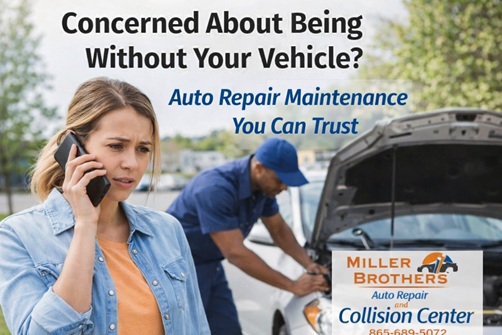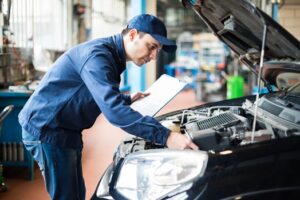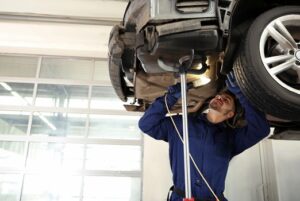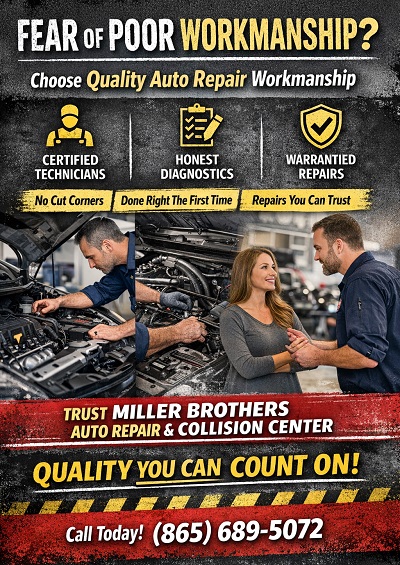
When it comes to maintaining your vehicle, few concerns are as stressful as questioning auto repair workmanship. Many drivers dealing with auto repair fears worry that shortcuts, inexperience, or lack of accountability could leave them with bigger problems than they started with. If you’re searching for dependable auto repairs Knoxville TN, understanding what quality auto repair workmanship looks like can give you confidence and peace of mind.
At Miller Brothers Auto Repair and Collision Center, we understand that trust is everything. Let’s break down why this fear exists—and how to protect yourself.
Why Auto Repair Workmanship Matters So Much
Your vehicle is one of your most important investments. Poor auto repair workmanship can lead to:
- Repeat breakdowns
- Safety risks for you and your family
- Voided warranties
- Higher long-term repair costs
- Decreased resale value
When auto repair workmanship is done correctly the first time, you avoid unnecessary stress and unexpected expenses. Quality matters—not just for performance, but for safety.
Common Auto Repair Fears About Workmanship
Many car owners in Knoxville share similar auto repair fears, including:
- Was the correct part installed?
- Were factory specifications followed?
- Were corners cut to save time?
- Is the technician properly trained?
- Will the repair actually fix the problem?
These concerns are valid. Poor auto repair workmanship can sometimes show up weeks or months later, which makes it even more frustrating.
That’s why choosing experienced professionals like Miller Brothers Auto Repair and Collision Center is critical.
Signs of Quality Auto Repair Workmanship
How can you tell if a shop values high-level auto repair workmanship? Look for these indicators:
1. Clear Communication
A reputable shop explains the issue, the solution, and the estimated cost before starting work. Transparency reduces auto repair fears and builds confidence.
2. Certified Technicians
Skilled, trained technicians are essential to delivering reliable repair. Experience and ongoing training matter when working on today’s advanced vehicles.
3. Detailed Invoices and Documentation
Professional shops document parts used, labor performed, and warranties offered. Strong auto repair is backed by accountability.
4. Warranties on Repairs
Confidence in auto repair shows when a shop stands behind its work with a solid warranty.
How Poor Auto Repair Workmanship Can Cost You More
Choosing the cheapest option often leads to repeated repairs. Inferior services can cause:
- Improper brake installation
- Electrical issues from incorrect wiring
- Engine damage from misdiagnosis
- Suspension problems due to improper alignment
In many cases, fixing poor workmanship costs more than doing the repair correctly the first time. That’s why investing in trusted auto repairs protects your vehicle and your budget.
Why Knoxville Drivers Trust Miller Brothers Auto Repair and Collision Center
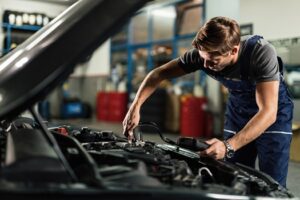
Auto repairs in Knoxville TN
At Miller Brothers Auto Repair and Collision Center, we’ve built our reputation by delivering dependable auto repair every day. Knoxville drivers choose us because we focus on:
- Accurate diagnostics
- High-quality parts
- Skilled technicians
- Honest recommendations
- Repairs done right the first time
We know that auto repair fears often stem from bad past experiences. Our goal is to eliminate that stress by providing professional auto repairs that residents can rely on.
When you leave our shop, you should feel confident—not uncertain.
Protect Yourself From Poor Workmanship
Before approving any repair, ask:
- What certifications do your technicians hold?
- Do you offer a warranty on parts and labor?
- Can you explain the repair in simple terms?
- Will I receive written documentation?
A trustworthy auto repair shop in Knoxville TN welcomes these questions. Strong auto repair workmanship is never defensive—it’s transparent and confident.
Choose Confidence Over Fear
You don’t have to let auto repair fears control your decisions. Quality auto repair ensures your vehicle runs safely, efficiently, and reliably.
If you’re looking for trusted auto repairs Knoxville TN drivers recommend, call Miller Brothers Auto Repair and Collision Center today at (865) 689-5072.
Let our experienced team deliver the professional auto repair workmanship your vehicle deserves—done right the first time.
Miller Brothers Auto Repair and Collision Center
7123 Tazewell Pike
Corryton, TN 37721
(865) 689-5072
https://www.millerbrosautorepair.com/
Serving Knoxville, TN and Knox County
Service areas include: All of Knox County, Corryton, Fountain City, Halls Crossroads, Powell and Knoxville

